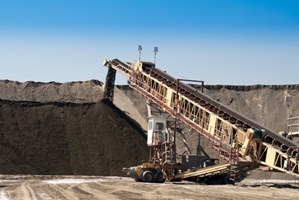Queensland’s coal industry reported record exports in 2015, making it two years in a row that overseas shipments have surpassed previous achievements. The Queensland Resources Council (QRC) revealed that 220 million tonnes of coal were sent to international buyers last year, up 2 per cent on 2014’s 216 million tonnes.
The QRC said the results are excellent news for the coal sector, which currently supports 8 per cent of all jobs in Queensland, as well as 11,000 businesses.
QRC Chief Executive Michael Roche said export records were broken at Abbot Point, Hay Point and Gladstone, while Dalrymple Bay shipments remained stable. According to Mr Roche, India remains a key market for Queensland’s lower-emission high-energy exports.
“With the benefit of the destination data produced by Gladstone Ports Corporation, we know that coal exports from Gladstone port to India (which accounts for about two-thirds of Queensland’s total coal exports to India) actually accelerated in the second half of 2015,” he stated.
“Coal exports from Gladstone port to India in the six months to December 2015 were more than 19 per cent higher than in the same period of 2014 and nearly 24 per cent higher than in the first six months of 2015.”
Communities ‘support’ coal exports
The QRC analysis predicted last year’s coal exports will provide $8.3 billion in royalties for the state, which can be used to build schools, roads and hospitals. The organisation added that community sentiment towards the industry is high.
QRC-commissioned figures from JWS Research revealed 72 per cent of Queenslanders have a favourable or neutral opinion of coal, while just 23 per cent had a negative viewpoint. Furthermore, 42 per cent of people backed the use of coal for steel production, with just 13 per cent disagreeing.
The Queensland government estimates the state’s inventory of coal is approximately 34 billion tonnes. However, this valuation was made in 2010, with forecasts much higher now that organisations have unlocked additional coal deposits in the Galilee Basin.
Many of the region’s resources companies already take on apprentices and trainees in Queensland to ensure they have enough qualified candidates to fill future skills gaps. If the coal industry continues to expand, more of these opportunities are likely to become available.
However, University of Queensland Professor John Quiggin said Australian mining could stagnate in 2016. He told the Queensland Times that a slowdown in economic growth across China is the primary problem. Nevertheless, Professor Quiggin stated Australia and Indonesia are in the “strongest position” of all other exporters worldwide.
By Leanne Macnamara, Public Relations Coordinator

